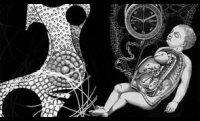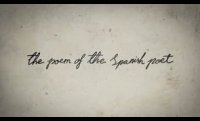While No One Wins in Fiction, Smith and Greenblatt Get Pulitzer Props
The Twittersphere heated up this afternoon after news broke that no Pulitzer Prize would be awarded for fiction published in 2011. The finalists for the award, also revealed today, were Denis Johnson for Train Dreams (Farrar, Straus and Giroux), Karen Russell for Swamplandia! (Knopf), and the late David Foster Wallace for The Pale King (Little, Brown). No explanation has been given regarding the decision to withhold the prize, a move that last occurred in 1977, except that the choice was up to the Pulitzer board, and not this year's judges, Maureen Corrigan, Michael Cunningham, and Susan Larson.
On Twitter, Publishers Marketplace news editor Sara Weinman (@sarahw) inquired, where does the money go, if no prize is given? (Each winner receives ten thousand dollars.) Beatrice.com creator Ron Hogan (@RonHogan) bemoaned the perceived necessity of such a prize altogether, writing, "But, but, if we don't have a Pulitzer-winning novel, nobody will get the sales boost, and publishing will be DOOOOOMED! #waaah." Public relations maven Kimberly Burns (@kimberlyburnspr) offered a similar sentiment: "No #Pulitzer for fiction means go to an independent bookstore & ask a bookseller for a recommendation."
But amid the chatter over the Pulitzer in fiction, plenty of attention was sent the way of poetry prize recipient Tracy K. Smith, whose win for Life on Mars (Graywolf Press) came on, of all days, her birthday. The finalists in poetry, also published by small presses, were Forrest Gander for Core Samples From the World (New Directions) and Ron Padgett for How Long (Coffee House Press).
Stephen Greenblatt took the prize in general nonfiction for his National Book Award-winning The Swerve: How the World Became Modern (Norton). The finalists were Diane Ackerman for One Hundred Names For Love: A Stroke, a Marriage, and the Language of Healing (Norton) and Mara Hvistendahl for Unnatural Selection: Choosing Boys Over Girls, and the Consequences of a World Full of Men (Public Affairs).
The Pulitzer Prizes are given annually for books published in the previous year by American authors.
In the video below, Smith discusses Life on Mars, including what Planet of the Apes and 2001: A Space Odyssey have to do with her winning collection.










